
How to recognize and address early warning signs of relapse
Understanding the Relapse Process
Relapse is not merely slipping back into old habits but a gradual process manifesting through distinct stages. Given that relapse can occur weeks or even months before substance use recurs, recognizing its early warning signs is crucial for timely intervention.
Recognizing the Signs: Emotional, Mental, and Physical Phases
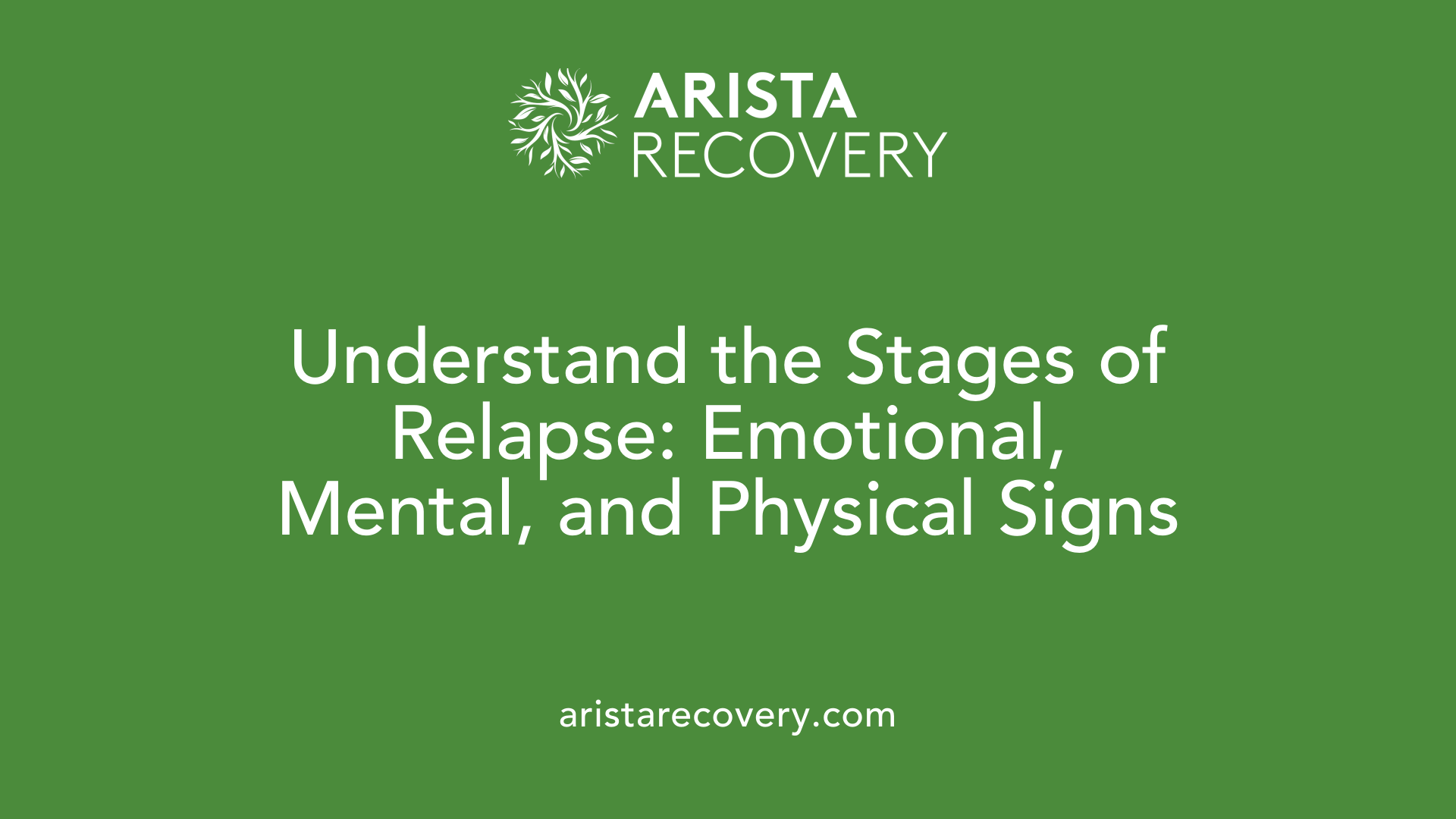
Stages of Relapse
Understanding the stages of relapse is essential in preventing a full-blown return to substance use. The process typically progresses through three distinct phases:
Significance of Emotional, Mental, and Physical Stages
Recognizing the significance of these stages aids in timely interventions. Early indicators of relapse may appear subtle yet are crucial for addressing challenges before they spiral out of control.
Common Early Indicators Include:
Each of these signs reflects a growing need for support. By acknowledging these early warnings, individuals can take proactive measures to safeguard their recovery journey, creating openings for assistance from friends, family, or professional resources when needed.
Emotional Relapse: The Crucial First Stage
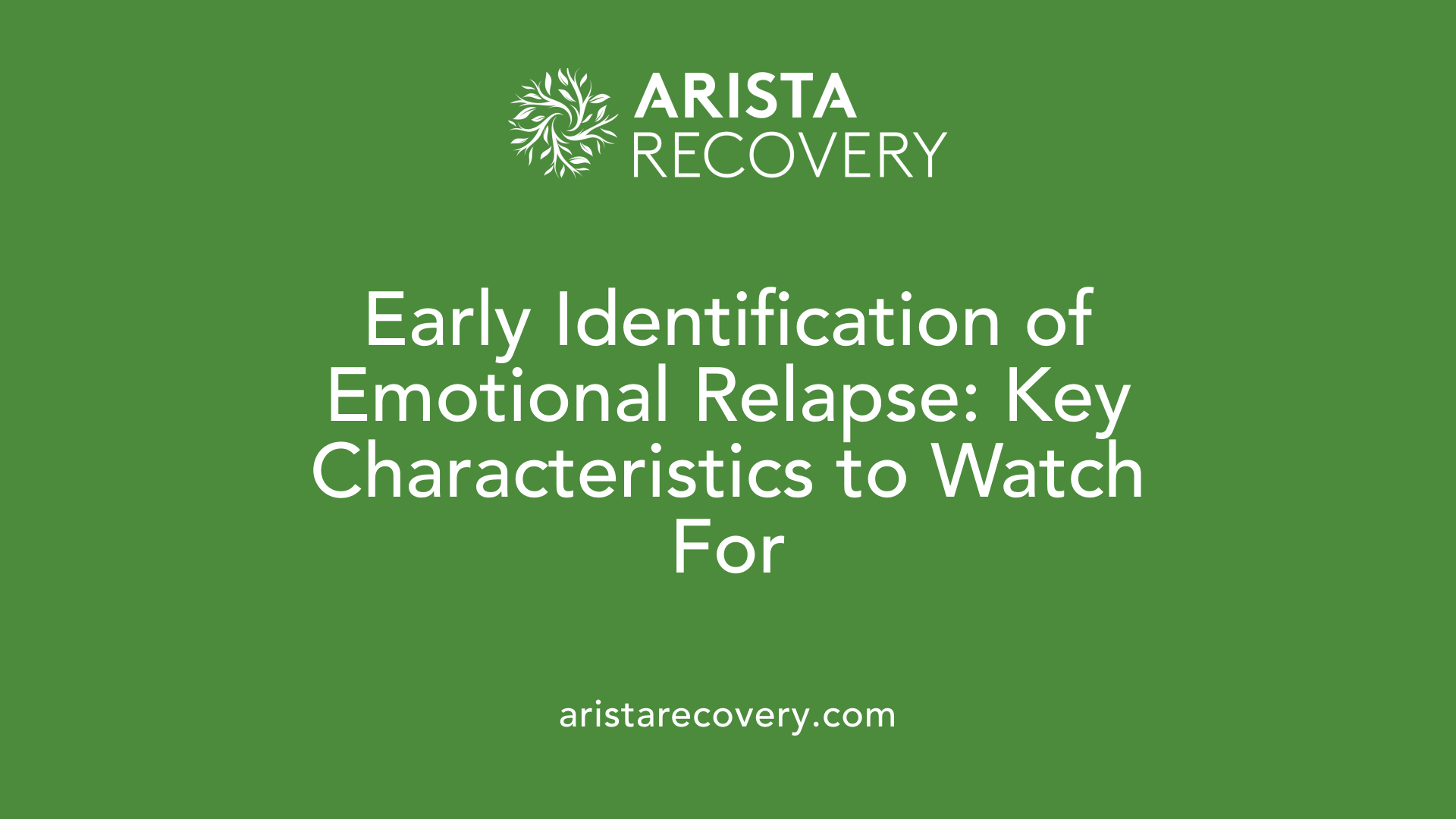
Characteristics of Emotional Relapse
Emotional relapse is the initial stage in the relapse process, marked by a variety of troubling emotional responses. Individuals may experience:
Recognizing these characteristics is vital as they can indicate a progressive trajectory toward relapse if left unaddressed.
Importance of Early Recognition
Why is it important to recognize emotional relapse early? Recognizing emotional relapse early is key. This includes practicing healthier behaviors such as seeking help, managing stress, and focusing on self-care to prevent escalation into a mental relapse.
Taking proactive steps during this stage can help build a stronger foundation for recovery and allow for timely interventions. By addressing emotional turmoil before it intensifies, individuals can significantly reduce the likelihood of progressing to more severe stages of relapse.
Mental Relapse: The Inner Conflict
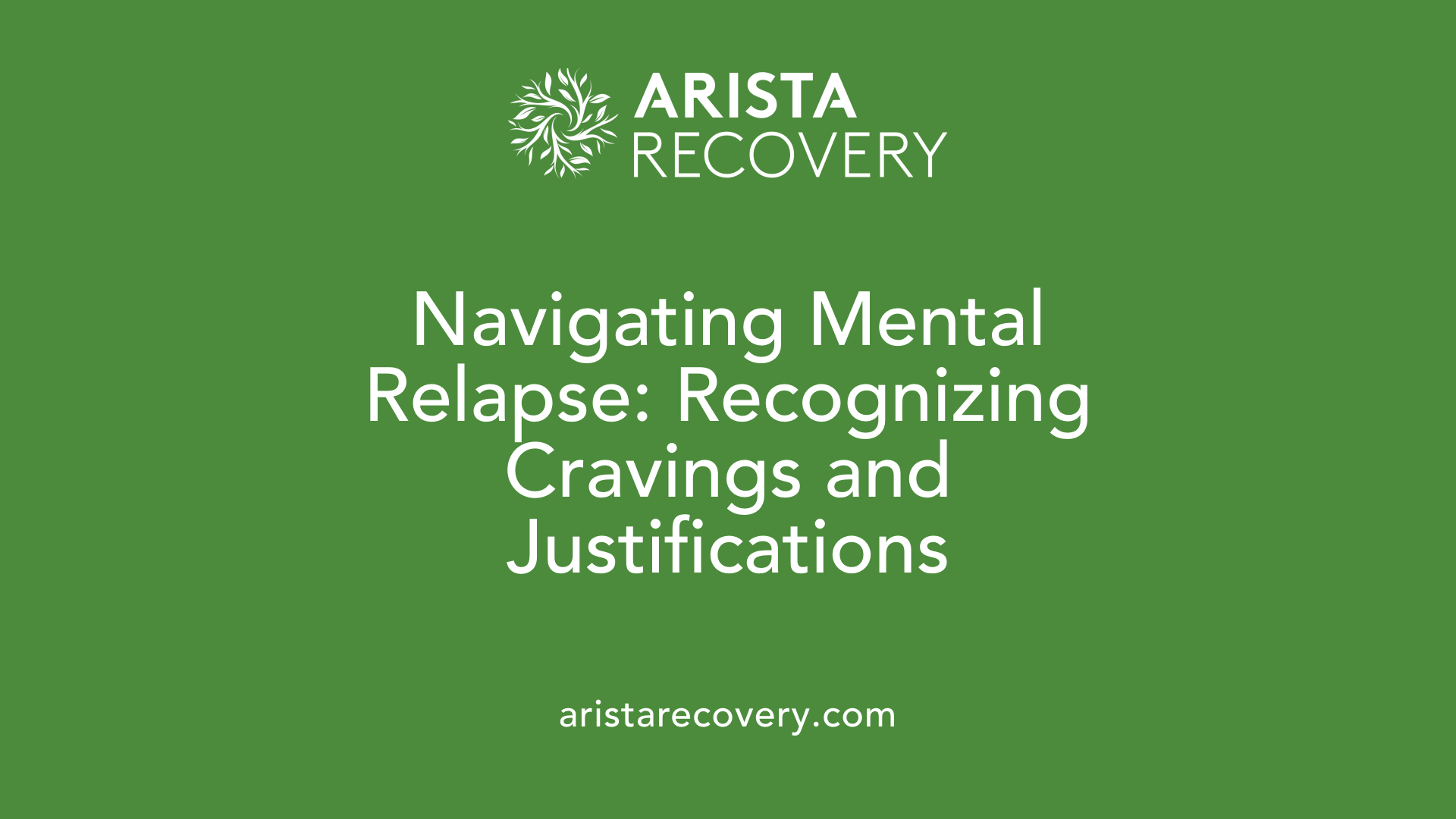
Characteristics of Mental Relapse
Mental relapse is a critical stage in the relapse process, often marked by an internal battle between the desire to remain sober and the temptation to return to substance use. Individuals in this phase may engage in several behaviors that signal a decline in recovery:
Recognizing these signs early is essential as it indicates a propensity for deviation from the recovery path, often leading to physical relapse.
Strategies for Intervention
Interventions during this phase are vital. Here are some effective techniques that can manage mental urges:
Implementing these strategies can reinforce recovery efforts, ensuring individuals maintain a strong resolve against relapse. Regular discussions with support networks can further strengthen resilience during these challenging moments.
Understanding Triggers and Their Impact
What are common triggers of relapse?
Relapse is a multi-faceted challenge, often influenced by various triggers. Common addiction relapse triggers include:
Managing personal triggers
Identifying and managing triggers is vital in preventing relapse. Here are some recommended strategies:
Recognizing and managing these triggers effectively can play a crucial role in maintaining long-term recovery.
Family and Friends: A Supportive Network
Why is the involvement of family and friends critical?
Family and friend involvement is essential; they should be educated about the recovery process and its warning signs for effective monitoring and support. Their presence can be a vital anchor as individuals navigate through their recovery journey. Understanding and recognizing early signs of relapse enables them to intervene proactively rather than reactively, potentially saving their loved ones from a full relapse.
Ways to provide support
The support offered by family and friends can take various forms:
Effective support from family and friends can significantly enhance the chances of successful recovery by ensuring that individuals feel less alone in their journey.
Self-Care and Lifestyle Adjustments to Prevent Relapse
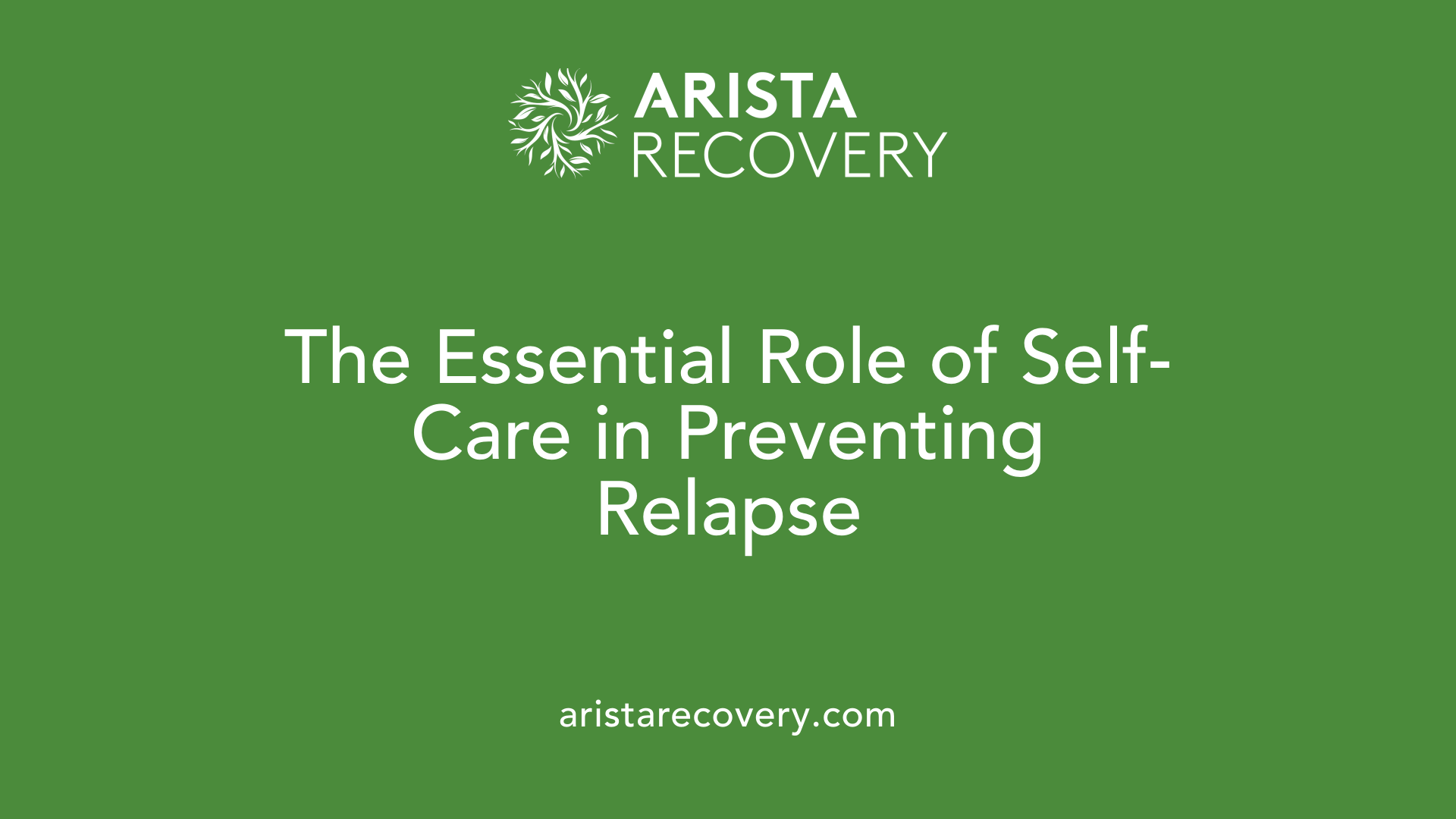
How does self-care help in relapse prevention?
Self-care plays a critical role in preventing relapse by ensuring that individuals maintain both their physical and mental well-being. Engaging in regular recovery meetings is crucial as it provides a support network and helps individuals remain focused on their recovery journey.
A balanced diet and proper sleep patterns are fundamental aspects of self-care. Healthy eating habits can stabilize mood and energy levels, contributing to better stress management. Similarly, good sleep hygiene promotes overall cognitive function and emotional stability, reducing the risks associated with mental and emotional relapses.
Moreover, incorporating stress-relief activities, such as exercise, meditation, or hobbies, can significantly boost mental health. These activities not only distract from cravings but also foster a sense of accomplishment and joy, which are vital for sustained recovery. Regularly practicing self-care helps individuals build resilience against the emotional and mental challenges that may otherwise jeopardize their sobriety.
Maintaining a balanced lifestyle
Living a balanced lifestyle is an essential part of relapse prevention. This means engaging in activities that fulfill various aspects of life, such as work, social connections, and personal growth. Individuals should aim to nurture relationships with supportive friends and family while avoiding contacts or environments that may trigger a desire to use substances.
Establishing a daily routine that includes fulfilling activities can help maintain stability. Limiting negative influences and avoiding isolation can mitigate feelings of loneliness that often precede a relapse. Setting realistic goals and reflecting on achievements can further bolster motivation and commitment to recovery, reducing the likelihood of a return to old habits.
Professional Help: Therapy and Medications
What are three evidence-based strategies for relapse prevention?
Three effective strategies for relapse prevention include therapy, medications, and ongoing monitoring.
Additionally, understanding the emotional and mental stages of relapse can enhance these strategies. When individuals know the early warning signs associated with emotional and mental deterioration, they can take proactive steps to seek help, reinforcing their recovery efforts effectively.
Efficacy of professional interventions
The combination of therapy, medication, and monitoring has shown significant efficacy in relapse prevention. The structured approaches provided by healthcare professionals can address complex emotional and behavioral issues, effectively reducing the risk of returning to substance use. As individuals navigate the challenging landscape of recovery, professional support is crucial in building resilience against relapse.
Community Support and Recovery Networks
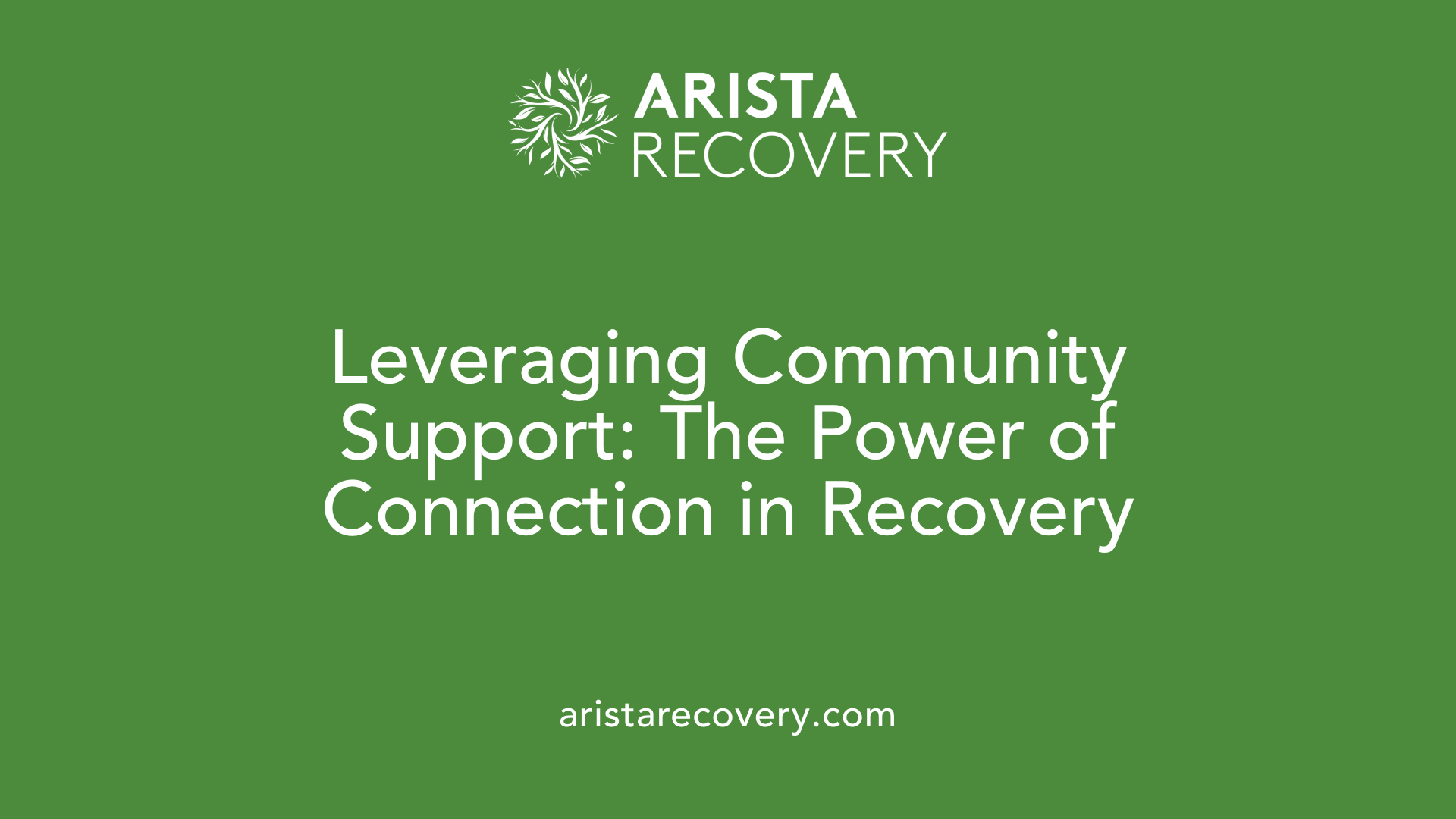
Importance of Community Support
Community support plays a vital role in recovery from addiction. It fosters a sense of belonging and accountability, which can significantly enhance an individual's chances of maintaining sobriety. Community interactions often alleviate feelings of isolation that many recovering individuals experience. Support systems can take many forms, including friends, family, and partners in recovery.
How do peer networks aid in preventing relapse?
Peer support groups, such as Alcoholics Anonymous (AA), provide an essential platform for individuals to share their experiences, struggles, and victories. These networks offer not just understanding and encouragement but also active strategies for maintaining sobriety. By engaging in regular meetings and forming connections with others who understand their journey, individuals can feel less isolated. This can improve resilience against relapse triggers since members motivate each other to stick to their recovery plans.
Effectiveness of Recovery Networks
The effectiveness of these recovery networks can vary by individual, as some may find immense strength in a community while others may prefer different forms of support. However, the key advantage remains clear: through shared knowledge and experiences, individuals become better equipped to manage the signs of a potential relapse. Whether through structured meetings or casual group gatherings, community support is an indispensable element in fostering long-term recovery.
Coping Mechanisms for Long-Term Sobriety
What coping strategies can support long-term sobriety?
Building resilience is crucial for anyone in recovery. It involves developing a mindset that embraces challenges as opportunities for growth. Practicing mindfulness can help in enhancing self-awareness, enabling individuals to recognize early warning signs of relapse, such as increased anxiety or mood swings. Mindfulness techniques include meditation, deep breathing exercises, and journaling, which can significantly improve one's emotional regulation.
Stress management techniques are equally important. Engaging in physical activities, pursuing hobbies, and establishing a routine can act as positive outlets for stress. Learning to identify triggers, such as social situations or emotional distress, enables individuals to develop proactive strategies to manage them effectively. This means formulating responses to stress by using techniques like assertiveness training or cognitive-behavioral strategies, which helps in addressing the roots of stress rather than resorting to substance use.
Additionally, building a strong support network involving friends, family, or peers from support groups can provide essential emotional support during tough times. Open discussions about feelings and experiences with loved ones can enhance accountability and foster a sense of belonging in the recovery journey.
Navigating Recovery Without Relapse
Relapse is a complex, often unavoidable part of the recovery journey. However, by recognizing the early warning signs and implementing evidence-based strategies, individuals and their support networks can prevent relapse or reduce its impact, ensuring a healthier, sustainable path to sobriety.
References
- Warning Signs of Relapse: Depression, Stress, and Other Triggers
- 6 Relapse Warning Signs To Know | Ashley Addiction Treatment
- 7 Common Addiction Relapse Triggers and Warning Signs
- Reducing Relapse Risk
- Relapse Prevention Plan and Early Warning Signs
- [PDF] Addiction Relapse Warning Signs
- Relapse Warning Signs & Prevention Strategies | 7 Summit Pathways
- Warning Signs of Relapse - Pinelands Recovery Center of Medford
- 10 Signs of Relapse to Look Out for - Footprints to Recovery
- Addiction Relapse Prevention - StatPearls - NCBI Bookshelf
When mental health challenges and addiction intersect, it can feel isolating. At Arista, we offer compassionate, evidence-based, and trauma-informed care to help you heal, grow, and move forward.
You’re not alone in this.
When mental health challenges and addiction intersect, it can feel isolating. At Arista, we offer compassionate, evidence-based, and trauma-informed care to help you heal, grow, and move forward.
Support that moves with you.
You’ve taken a brave first step. At Arista Recovery, we’re here to help you continue with best-in-class care designed for long-term healing and support.
.webp)






